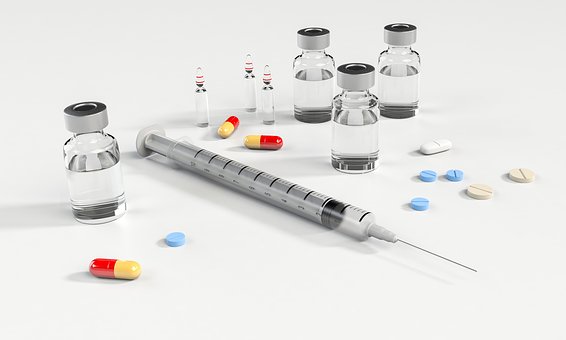The Government has announced significant reforms to the possession of drugs for personal use in line with its commitment to pursue a public health approach to drug use in Ireland.
Minister for Health Simon Harris, Minister for Justice Charlie Flanagan and Minister of State with responsibility for the National Drugs Strategy Catherine Byrne announced Government approval to develop a health-led approach.
The decision is on foot of the report of the Working Group to Consider Alternative Approaches to the Possession of Drugs for Personal Use. The group was set up as an action under the national drugs strategy; ‘Reducing Harm, Supporting Recovery’.
There are two components to the Health Diversion Approach whereby a person in possession of drugs, determined by An Garda Síochána to be for personal use, on the first occasion would be referred by An Garda Síochána on a mandatory basis to the Health Service Executive for a health screening and brief intervention. On the second occasion, An Garda Síochána would have discretion to issue an Adult Caution.
Welcoming the decision to implement a health-led approach, Minister Harris said: “This is a very significant day. For far too long, we have only looked at drug use from a criminal justice perspective. Addiction has impacted so many families and many communities. It is essential we look beyond the labels society forces on people with addiction, look to the person and how the system can help them.
Today is the start of a new approach. One that offers people a helping hand, not handcuffs. One that offers a person a second chance. I strongly believe this will help us battle drug addiction and ultimately save lives.”
Minister Harris added: “This approach will not decriminalise drug use; it is a mechanism to defer people to health and social services for help and support. Ministers Flanagan, Byrne and I are very clear that there are no plans to legalise any type of drugs, including cannabis.”
Minister Flanagan also welcomed the decision: “I am grateful to the Chair of the Working Group, Judge Garrett Sheehan, and his colleagues who gave a great deal of consideration to this complex issue. I am very pleased that we are in a position to build on the work already done to try to reduce the amount of people ending up with a criminal conviction for first time simple drug possession offences, while at the same time continuing to take a very tough approach against those who supply those drugs to often vulnerable people in our communities.
While we seek to help vulnerable people who use drugs, we will continue the relentless pursuit of drug dealers and I intend to develop an increasingly punitive approach to those who seek to involve children in drug related crime. My officials are currently examining the potential to develop legislative proposals in this area, taking account of international best practice.”
Minister Byrne said: “The decision to introduce a health diversion for persons in possession of drugs for personal use is a hugely important step in developing a public health approach to drug use in Ireland. I am very pleased that we are delivering on this key commitment from the Programme for Government which forms the cornerstone of our National Drugs Strategy.
Drug addiction is an illness and touches many families and communities. That is why it is so important to break down the stigma associated with drug use and to show compassion in difficult circumstances.
The Health Diversion Approach seeks to connect drug users with health services and to support them on their path to recovery. We want to reach out and give people, young people in particular, the opportunity to avoid a criminal conviction which can have long lasting consequences for their future work and travel prospects.
I want to thank the members of the Working Group, and the more than 20,000 people who took part in the public consultation which helped to inform the group’s recommendations on this very important issue”.
Under the Health Diversion Approach, a person in possession of drugs for personal use would engage with the Health Service Executive to attend health screening and brief intervention (known as SAOR). The Health Service Executive will provide health professionals in all Community Healthcare Organisations to deliver this service for people referred by An Garda Síochána.
Complementing the Health Diversion Approach, Ministers Harris and Byrne will support additional investment in drug treatment services and promote an awareness campaign on the treatments available and the harms associated with drug use.
The adult caution scheme allows An Garda Síochána to issue a formal caution, instead of pursuing a prosecution, in relation to a number of specified offences. The extension of the adult caution scheme to include simple drug possession offences gives An Garda Síochána the option of diverting appropriate cases away from the criminal justice system.
In addition, Minister Flanagan intends to examine the possibility of introducing a specific offence of grooming children, through inducements such as the provision of drugs or by other means, for the commission of drug related crime, with a view to combatting any potential exploitation of children.
A small implementation, monitoring and evaluation group will be set up to progress the Health Diversion Approach, with phased implementation expected to begin in Q3 of 2020. The group will be chaired by the Dept of Health and membership will include Dept of Justice and Equality, An Garda Síochána and the Health Services Executive.
The Ministers also published the report of the Working Group to Consider Alternative Approaches to the Possession of Drugs for Personal Use on the Departments’ websites. This report made recommendations for an adult caution and a diversion to health services, which have been adopted by Government. The report did not recommend a decriminalisation approach, as in Portugal, due to difficulties in the Irish legal context.
Recommendations in the report on imprisonment for drug possession and on spent convictions for drug possession were not considered by Government.
A minority report by the chairperson of the working group was also published. This also did not recommend decriminalisation and advised against any changes that might normalise drug use.

















